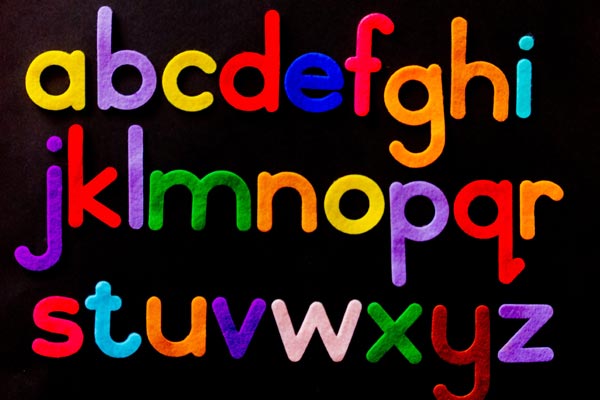B
baby
用法:名词,指刚出生的婴儿或很小的孩子。
例句:She held the baby gently in her arms. 她轻轻地把婴儿抱在怀里。
back
用法:副词,表示向后或回到某个地方;形容词,表示后面的或背部的;名词,表示背部或后部。
例句:He walked back to his house after the party. 聚会后,他走回自己的家。
background
用法:名词,表示背景或背景信息。
例句:The artist studied the history and culture of the region to understand its background. 这位艺术家研究了该地区的历史和文化,以了解其背景。

bad 比较级 worse, 最高级 worst
用法:形容词,表示坏的、有害的、不利的或严重的。
例句:The weather is very bad today. 今天的天气非常糟糕。
bag
用法:名词,表示书包、提包或袋子。
例句:She carried a red bag with her. 她带着一个红色的包。
ball
用法:名词,表示球或舞会。
例句:The children played with a ball in the park. 孩子们在公园里玩球。
balloon
用法:名词,表示气球。
例句:The children released the balloons into the air. 孩子们把气球放飞到空中。
bamboo
用法:名词,表示竹子。
例句:Pandas eat bamboo leaves and shoots. 熊猫吃竹子的叶子和嫩芽。
banana
用法:名词,表示香蕉。
例句:I like to eat bananas for breakfast. 我喜欢早餐吃香蕉。
bank
用法:名词,表示河岸、湖岸、海岸或银行。
例句:The river bank was covered with flowers. 河岸上长满了鲜花。 / She went to the bank to deposit her money. 她去银行存钱。
baseball
用法:名词,表示棒球运动或棒球。
例句:I enjoy watching baseball games on TV. 我喜欢在电视上观看棒球比赛。
basic
用法:形容词,表示基本的或基础的。
例句:The basic principles of physics are taught in this course. 这门课程教授物理学的基本原理。
basket
用法:名词,表示篮子。
例句:She put the fruits in the basket. 她把水果放进了篮子里。
basketball
用法:名词,表示篮球运动或篮球。
例句:Basketball is my favorite sport. 篮球是我最喜欢的运动。
bathroom
用法:名词,表示浴室或洗手间。
例句:I took a shower in the bathroom. 我在浴室里洗了个澡。
be
用法:动词,表示是或成为,根据不同的时态和人称有不同的形式。
例句:I am a student. 我是一名学生。 / They were happy to see each other. 他们很高兴见到彼此。
beach
用法:名词,表示海滩或海滨。
例句:We spent a relaxing afternoon on the beach. 我们在海滩上度过了一个轻松的下午。
bear
用法:名词,表示熊这种动物。
例句:The bear is hibernating in its den. 熊正在洞穴里冬眠。
beat beat, beaten
用法:动词,表示敲打、跳动或打赢;名词,表示音乐的节拍。
例句:The drummer beat the drum rhythmically. 鼓手有节奏地击鼓。 / She could feel her heart beat fast. 她能感觉到自己的心跳加速。
beautiful
用法:形容词,表示美的、美丽的或美观的。
例句:She wore a beautiful dress to the party. 她穿着一条漂亮的裙子去参加派对。
because
用法:连词,表示原因,引导原因状语从句。
例句:I didn't go to the party because I was feeling tired. 因为我感觉累了,所以我没去参加派对。
become (became, become)
用法:动词,表示变得或成为。
例句:She became a doctor after years of study. 经过多年的学习,她成了一名医生。
bed
用法:名词,表示床或睡眠的地方。
例句:Can you lend me a blanket? I'm sleeping on the floor tonight. 你能借我一床毯子吗?今晚我要睡地板。
bedroom
用法:名词,指睡觉的房间或卧室。
例句:I like to read in my bedroom before going to sleep. 我喜欢在睡觉前在我的卧室里阅读。
bee
用法:名词,指蜜蜂这种昆虫。
例句:The bees were busy collecting honey from the flowers. 蜜蜂正忙着从花朵中采集蜂蜜。
beef
用法:名词,指牛肉。
例句:I had a steak and kidney pie for dinner, it was delicious beef. 晚餐我吃了一个牛排和腰子馅饼,里面的牛肉非常美味。
before
用法:介词,表示在某物或某人之前;副词,表示以前;连词,表示在某事之前。
例句:She arrived at the office before 9 am. 她上午9点前就到了办公室。
begin began, begun
用法:动词,表示开始或着手做某事。
例句:The concert began at 8 pm. 音乐会晚上8点开始。
behaviour
用法:名词,指人的行为举止或态度。
例句:His behaviour at the party was inappropriate. 他在派对上的举止不合适。
behind
用法:介词,表示在某物的后面;副词,表示在后面或向后。
例句:The cat hid behind the sofa. 猫藏在沙发后面。
believe
用法:动词,表示相信或认为某事是真实的。
例句:I believe what he said is true. 我相信他说的是真的。
bell
用法:名词,指钟、铃或钟铃声,也指钟形的物体。
例句:The school bell rang, signaling the end of the class. 学校的钟声响了,标志着课程结束。
below
用法:介词,表示在某物的下面。
例句:The boat was floating below the bridge. 船在桥下漂浮。
belt
用法:名词,指(皮带,如腰带或传送带。
例句:She tightened her belt to fit the dress better. 她紧了紧腰带,使裙子更合身。
beside
用法:介词,表示在某物的旁边或靠近。
例句:The cat sat beside the fire, warming itself. 猫坐在火炉旁,给自己取暖。
besides
用法:介词,表示除某物之外还有其他;副词,表示还有或此外。
例句:Besides English, he speaks French and Spanish. 除了英语,他还会说法语和西班牙语。
between
用法:介词,表示在两个物体或人之间,或在某个范围内。
例句:The decision was made between the two heads of department. 这个决定是由两位系主任共同作出的。
beyond
用法:介词,表示在某物的那边或远处。
例句:The mountains lay beyond the valley. 山脉位于山谷的那边。
big
用法:形容词,表示尺寸、数量或程度的大。
例句:She has big blue eyes. 她有一双蓝色的大眼睛。
bike = bicycle
用法:名词,指自行车。
例句:I usually go to work by bike. 我通常骑自行车去上班。
bill
用法:名词,指账单、法案、议案或钞票(尤指纸币。
例句:Please check the bill before you pay. 付款前请核对账单。
bird
用法:名词,指鸟类动物。
例句:The bird flew away when we approached. 我们走近时,鸟儿飞走了。
birth
用法:名词,指出生或诞生的动作或事实。
例句:She celebrated her 25th birthday last week. 她上周庆祝了自己的25岁生日。
birthday
用法:名词,指某人的出生日期或生日。
例句:I had a great party for my birthday last month. 上个月我举办了一个很棒的生日派对。
biscuit
用法:名词,指饼干。
例句:She offered me a cup of tea and a biscuit. 她给我端来一杯茶和一块饼干。
bit
用法:名词,表示少量、一些或一点。
例句:Can you pass me a bit of that chocolate? 你能给我那块巧克力的一小部分吗?
bitter
用法:形容词,表示有苦味的,或情感上的痛苦、难过、严酷。
例句:The coffee was too bitter to drink. 这咖啡太苦了,喝不下去。 She had a bitter disappointment when she failed the exam. 她考试失败时感到非常失望。
black
用法:名词,指黑色这种颜色;形容词,表示黑色的或黑暗的。
例句:She wore a black dress to the party. 她穿了一条黑色连衣裙去参加派对。 It was a black night with no moon or stars. 那是一个没有月亮和星星的黑暗夜晚。
blackboard
用法:名词,指黑板,通常用于学校或教室中。
例句:The teacher wrote the lesson plan on the blackboard. 老师在黑板上写下了课程计划。
blind
用法:形容词,表示瞎的或盲目的。
例句:The blind man依靠触觉和听觉来感知世界。(The blind man感知世界 through touch and hearing. She was blinded by the sudden bright light. 她被突然出现的强光刺得眼花缭乱。
blood
用法:名词,指人或动物的血液,是生命的重要组成部分。
例句:She cut her finger and the blood started to flow. 她割破了手指,血开始流出来。 Donating blood is a noble act. 献血是一种高尚的行为。
blow n. 击;打击
例句:He gave her a hard blow on the arm. 他在她的手臂上重重打了一下。
blue n. 蓝色 a. 蓝色的 悲伤的;沮丧的
例句:She wore a blue dress to the party. 她穿了一条蓝色的裙子去参加派对。
He felt blue after the loss of his pet. 他的宠物去世后,他感到非常沮丧。
board n. 木板;布告牌;委员会;(政府的部 v. 上(船、火车、飞机
例句:The ship hit a rock and a hole appeared in the side of the board. 船撞上了岩石,船板上出现了一个洞。
Can you help me board the plane? 你能帮我登机吗?
boat n. 小船,小舟
例句:We went for a ride in a rowing boat on the lake. 我们在湖上划着小船游玩。
body n. 身体
例句:She takes good care of her body by exercising regularly. 她通过定期锻炼来照顾好自己的身体。
book n. 书;本子 v. 预定,定(房间、车票等
例句:I enjoy reading books about history. 我喜欢阅读关于历史的书籍。
I have booked a ticket to New York for next week. 我已经预定了下周去纽约的票。
boring a. 乏味的,无聊的
例句:The movie was so boring, I fell asleep halfway through. 这部电影太无聊了,我中途就睡着了。
born a. 出生
例句:She was born in a small town in France. 她出生在法国的一个小镇上。
borrow v. 向别人借用;借
例句:Can I borrow your pen? Mine is out of ink. 我能借你的笔用一下吗?我的笔没墨水了。
boss n. 领班;老板
例句:The boss asked us to finish the project by the end of the week. 老板要求我们在这周末之前完成这个项目。
both a. 两;双 pron. 两者;双方
例句:I like both coffee and tea. 我既喜欢咖啡也喜欢茶。
Both teams played well, but in the end, the Blue team won. 两队都打得很好,但最终蓝队赢了。
bottle n. 瓶子
例句:Can you pass me the bottle of water, please? 你能递给我那瓶水吗?
bottom n. 底部;底
例句:The cat climbed up the tree and then jumped to the bottom of the fence. 猫爬上了树,然后跳到了篱笆的底部。
bowl n. 碗
例句:She ate her cereal from a big bowl. 她用一个大碗吃麦片。
box n. 盒子,箱子
例句:Please put all your belongings in the box marked "fragile". 请把你所有的易碎物品放在标有“易碎”的箱子里。
boy n. 男孩
例句:The boy with the blue shirt is my brother. 穿蓝色衬衫的男孩是我哥哥。
brain n. 脑(子
例句:She has a very sharp brain and always comes up with clever ideas. 她很聪明,总是能想出聪明的点子。
brave a. 勇敢的
例句:He showed great bravery when he saved the drowning child. 他救那个溺水孩子的时候表现出了巨大的勇气。
bread n. 面包
例句:I had a slice of bread with my coffee for breakfast. 我早餐吃了一片面包和一杯咖啡。
break broke, broken v. 打破(断,碎;损坏,撕开 n. 间隙
例句:She accidentally broke the vase while cleaning the table. 她在擦桌子时不小心打碎了花瓶。
There was a break in the conversation when the phone rang. 电话响时,对话中断了。
breakfast n. 早餐
例句:I usually have a healthy breakfast of toast and eggs. 我通常吃健康的早餐,包括吐司和鸡蛋。
breath n. 气息;呼吸
例句:He took a deep breath before speaking. 他说话前先深吸了一口气。
breathe vi. 呼吸
例句:Fish breathe through gills. 鱼通过鳃呼吸。
bridge n. 桥
例句:The bridge over the river is very old. 河上的那座桥很古老。
bright a. 明亮的;聪明的
例句:She has bright eyes and a bright smile. 她有一双明亮的眼睛和灿烂的笑容。
He is a bright student and always does well in school. 他是一个聪明的学生,在学校总是表现得很好。
bring brought, brought vt. 拿来,带来,取来
例句:Can you bring me my book from the other room? 你能从另一个房间把我的书拿来吗?
brother n. 兄;弟
例句:I have a younger brother and an older sister. 我有一个弟弟和一个姐姐。
brown n. 褐色,棕色 a. 褐色的,棕色的
例句:The bear had brown fur. 那只熊有棕色的皮毛。
brush v. 刷;擦 n. 刷子
例句:She brushed her hair every morning before going to school. 她每天早上上学前都会梳头。
build built, built v. 建筑;造
例句:The city built a new library last year. 去年这座城市建了一座新图书馆。
building n. 建筑物;房屋;大楼
例句:The building is made of concrete and glass. 这座大楼是由混凝土和玻璃建成的。
bun n. 馒头;小甜面包
例句:I like to have a bun for breakfast. 我喜欢早餐吃馒头。
burn -ed, -ed 或 burnt, burnt v. 燃,烧,着火;使烧焦;使晒黑 n. 烧伤;晒伤
例句:The sun burnt her skin. 太阳晒伤了她的皮肤。
bus n. 公共汽车
例句:The bus is coming. Let's get on. 公共汽车来了。我们上车吧。
business n. 本分工作,职业;职责;生意,交易;事业
例句:She runs a successful business. 她经营着一家成功的企业。
busy a. 忙(碌的
例句:He's very busy today, so he can't meet you. 他今天很忙,所以不能见你。
but conj. 但是,可是
例句:I like coffee, but I don't like tea. 我喜欢咖啡,但我不喜欢茶。
prep. 除了,除 …… 外
例句:Everyone is here but John. 除了约翰,大家都到了。
butter n. 黄油,奶油
例句:She spread butter on her toast. 她在吐司上抹了黄油。
butterfly n. 蝴蝶
例句:The butterfly has beautiful wings. 这只蝴蝶有美丽的翅膀。
buy(bought,bought vt. 买
例句:I bought a new car last week. 我上周买了一辆新车。
by prep. 靠近,在 …… 旁;在 …… 时间;不迟于;被;用;由;乘(车
例句:The park is by the river. 公园在河边。
I'll be there by 10 o'clock. 我十点前会到那里。
bye int. 再见
例句:Bye, see you later! 再见,待会儿见!








